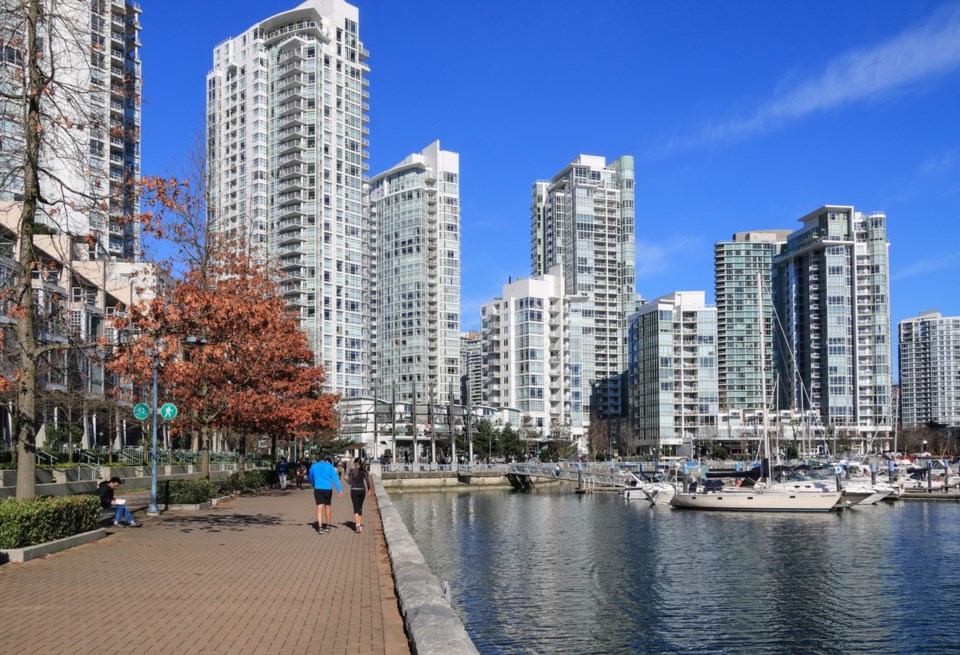The Chinese government deciding to do with the B.C. properties owned by Anbang Insurance Group Co. – after the investment giant was taken over by a Beijing government agency in late February – will be a major litmus test for China’s promise to be more tolerant of free-market forces.
That is the conclusion of several international business and Asian geopolitics observers in light of the February 23 announcement from Chinese state media that the China Insurance Regulatory Commission has taken control of Anbang and begun prosecuting former chairman and CEO Wu Xiaohui.
Anbang, which has been one of the most prolific Chinese buyers of foreign properties on the global market in recent years, has reportedly amassed up to $157 billion in assets as of 2015. Its B.C. holdings include the Bentall Centre office complex in downtown Vancouver – under full Anbang ownership since 2016 – and Retirement Concepts, the province’s largest owner of retirement homes. Anbang purchased the latter last year in a $1 billion deal.
“There was originally some public concern when the initial [Retirement Concepts] deal was made, and that’s been somewhat realized with what happened now,” said B.C. Health Minister Adrian Dix.
Dix noted that while most of the company’s purview falls under federal jurisdiction, the province is keeping close tabs on the situation along with both Ottawa and Pacific Reach Seniors Housing Management, the company in charge of Retirement Concepts’ local operations, since provincial funding – as well as regulation – is involved.
“With the expenditure of public funds comes responsibility,” Dix added. “So we will be vigilant in protecting our seniors by fully exercising whatever is within our rights and jurisdiction.”
A statement from Retirement Concepts confirmed that an interim management group from the Chinese government agency will oversee Anbang’s operations for one year. The statement also confirmed the Retirement Concepts’ operations remain regulated by B.C. laws and will not be affected by Anbang’s management change.
“No potential change is coming,” said Sheri Brown, marketing director for Pacific Reach. “And all our residents are quite happy.”
But just because Retirement Concepts appears to be untouched does not mean the same will apply elsewhere in B.C., said Andreas Schotter, professor of international business at the University of Western Ontario’s Ivey Business School.
Schotter, a former business executive in China, said it is likely Beijing will take a case-by-case approach with each Anbang property, since the move to take over Anbang was ostensibly to curtail “illegal business practices” of the company and to manage its potentially problematic levels of corporate debt. In that sense, he surmised that overseas properties acquired by Anbang at a premium – with no consideration of cash flow or business efficiencies – will more likely be considered for a sale.
“It all depends on which ones of the investments yield positive returns and cash flow in the short run,” Schotter said. “Bentall Centre is certainly not in this category, as it was acquired at a premium. The question is, will it be sold at a loss? Retirement Concepts has the potential to generate cash flow and growth – so that’s more likely to be kept.”
What is more interesting than what happens with Anbang’s B.C. properties, Schotter added, is how Beijing deals with the company’s overall management – which may have huge ramifications in China’s direction in dealing with the private sector. He cited the takeover essentially as China’s version of the “too big to fail” phenomenon, similar to what happened with American International Group (NYSE:AIG) and General Motors (NYSE:GM) in the 2008 financial crisis in the United States.
Anbang had about 30 million Chinese life insurance clients.
“The bigger question is, how does the government want to claw back some of the massive capital flight that has happened out of China, where essentially wealthy investors or companies – flooded with investment cash – bought foreign assets, often at premium multiple times the current value, just to get money out of the country?” Schotter noted.
“I suspect, though, that it is a much bigger problem, and some sense of objectivity needs to be the foundation of this. The danger is that the phenomenon is already too widespread, and that countermeasures from Beijing resemble a crackdown and are based on some personal – rather than purely regulatory – grounds.”
Yves Tiberghien, director emeritus of the University of British Columbia’s Institute of Asian Research, said Beijing’s next steps for Anbang are completely unpredictable, since there are no precedents for a Chinese government takeover of a private company with the global scale of Anbang. But he agreed with Schotter that what Beijing chooses to do will say much about the country’s direction in governing the private sector – which may include Canadian companies doing business in China.•



